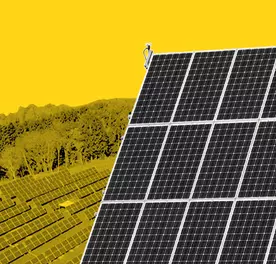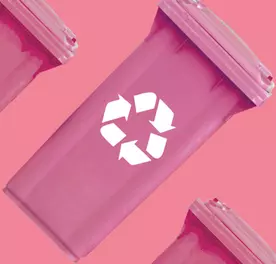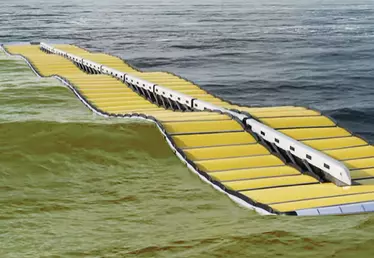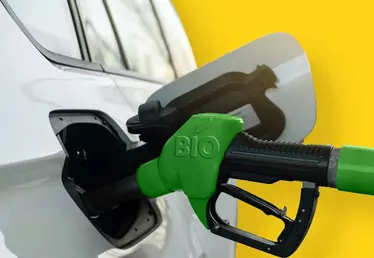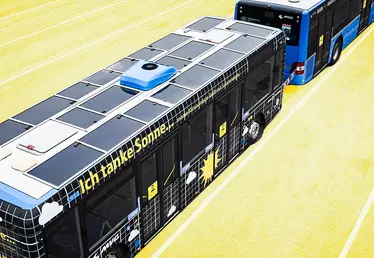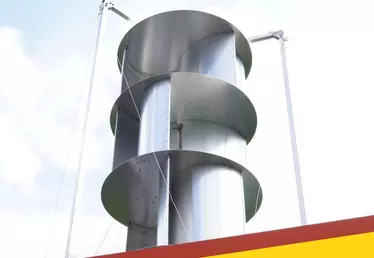

Hero banner custom title
This Renault plant runs on olive cake!
4 min
Build the first zero carbon automotive plant. A challenge Renault and Veolia rose to in Tangier, Morocco using olive cake as biomass to cover the plant’s energy requirements.
Industry has an important role in the energy transition; it has to change production methods and reduce its environmental impact.
According to the Intergovernmental Panel on Climate Change (IPCC) in 2010 industry was responsible for 21% of all global greenhouse gas emissions. Taking into account the emissions caused by energy produced for use in the sector, the industry’s global greenhouse gas emissions rise to 31%.
In the automotive sector, some groups – headed by the Renault Group - are aware of the need to reduce their energy consumption. Between 2010 and 2016 Renault, the automotive sector leader in France, set itself the goal of reducing the carbon footprint of all its activities by 3% per year including industry, engineering, transport, and trade. In 2012, the automotive manufacturer joined forces with Veolia to rethink the energy supply system at one of its new plants in Tangier, Morocco.
In order to develop the best solution, Veolia first screened the energy consumption of each step on the production line in the Tangier plant. The audit showed that the most energy-intensive was the paint shop.
It requires a continuous supply of water superheated to 120°C to heat the paint drying rooms - 70% of the site's thermal energy consumption!
To meet this energy requirement and at the same time reduce carbon emissions, Renault and Veolia came up with the idea of using local biomass: "olive cake" - a mixture of skins, pulp residues and olive stone fragments.
A carbon-neutral and abundant source of renewable energy, this co-product comes from the country's olive oil industry.
Olive cake is burned to continuously feed the workshop’s three boiler rooms. And because "nothing is lost, everything is transformed", the ash is collected and used as a natural fertilizer by local agriculture.
In this short circular economy loop, biomass covers 100% of the site’s thermal needs. Designed to accompany the increase in production on the site, which today stands at about 320,000 vehicles per year, the biomass boilers consume nearly 25,000 metric tons of residues annually.
It also prevents the emission of
100,000 metric tons of CO2 annually.
The remaining energy comes from wind power.
With this process, this Renault plant, one of the largest in the Group, has become the first "zero carbon and zero emission" automotive plant.
After "zero carbon and zero emission", "zero discharge" completes the site’s environmental performance. The plant’s waste recycling rate has risen to 98%. An innovative closed loop water recycling system, the "zero industrial liquid discharge" approach has also halved water consumption per vehicle produced and saves around 300,000 m3 of water per year.
Renault's Tangiers plant is now a world reference in terms of environmental excellence.

